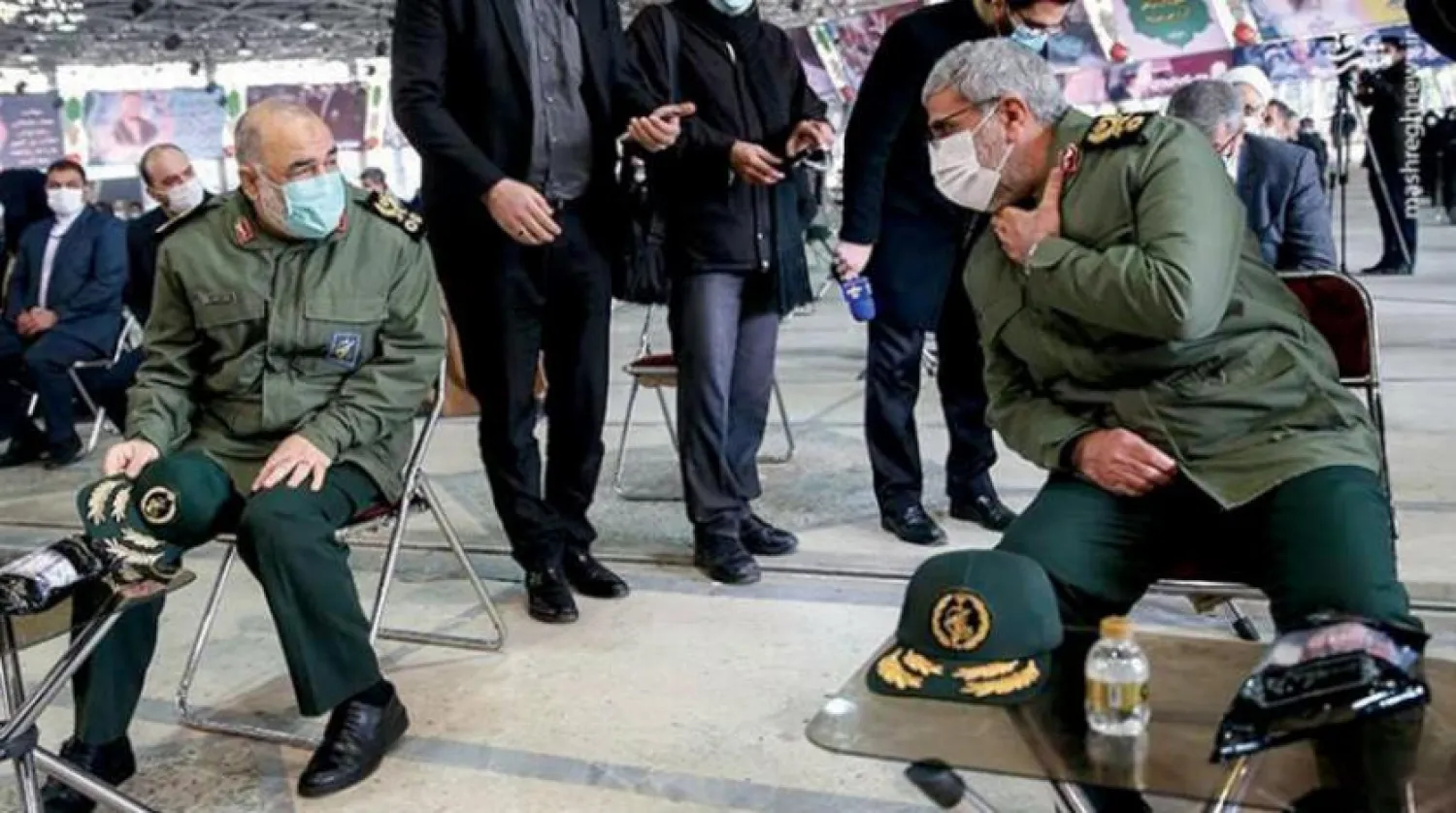The top commander of Iran's paramilitary Revolutionary Guard Hussein Salami admitted on Sunday that his country has several times gone to the threshold of war, but said that the cleric-led nation has reached a degree of power that today it “sets conditions for enemies.”
Crediting the force of the “Welayah,” in an oblique hint referring to Iranian proxy militias in the region, Salami said now enjoys leverage over foes.
He said that Iran has thrashed its enemies in the economic war waged against it, and that the “maximum pressure campaign - along with its architect - have been defeated.”
Former US president Donald Trump had pulled out from the Iran nuclear deal in May 2018 and slapped aggressive economic sanctions as part of a maximum pressure campaign against the regime in Tehran.
Economic sanctions were intended to force Tehran into accepting a more comprehensive deal that includes modifying its regional behavior and curbing its ballistic missile program.
Speaking to a crowd of paramilitary volunteer militants known as the Basij, Salami said that Iran “has several times gone to the threshold of war” but was saved by the country’s Supreme Leader Ali Khamenei, who “alone had forced enemies to retreat.”
In April 2019, Khamenei issued a decree appointing Salami as commander of the Revolutionary Guard, which is considered a parallel force to the Iranian Army.
The move came less than two weeks after Trump signed a decree blacklisting the Revolutionary Guard as an international terrorist organization.
Iran, retaliating against US economic sanctions, announced a plan for its gradual withdrawal from the nuclear deal, which was struck with P5+1 countries and the European Union.
Despite freezing its commitments to the deal, Iran said it would return to abiding by the agreement’s stipulations if other signatories compensate Tehran for losses it incurred due to US economic sanctions.
A consequence of Iran moving away from the deal was tensions rising across the region. Oil tankers sailing the Gulf of Oman and the Strait of Hormuz were getting attacked.









